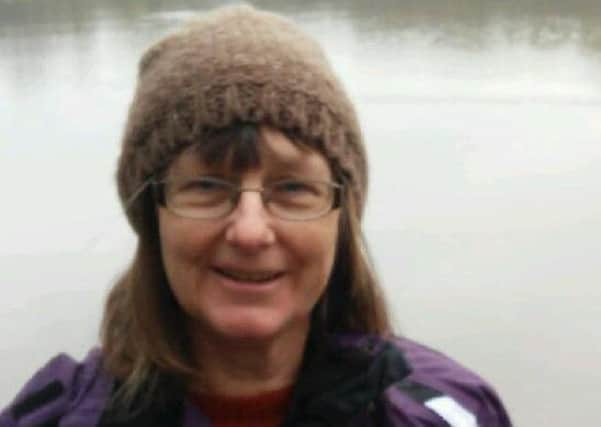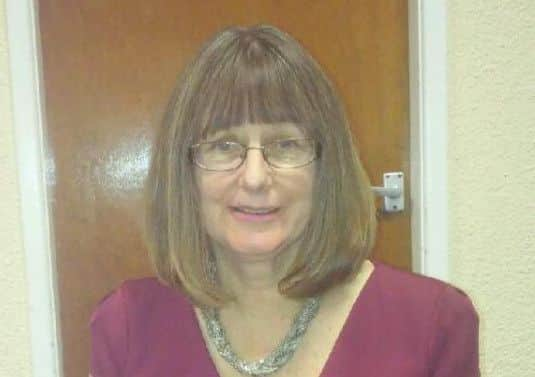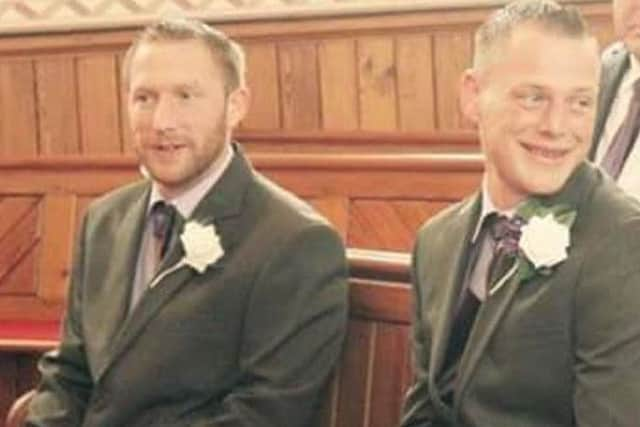'˜Losing a child is traumatic but knowing it could have been prevented makes it worse'


Jenny, 67, who lives in Heath Charnock, near Chorley, but was living in Scotland at the time in 1967, explains: “He had been my doctor since I was 15-months-old so of course, I fully trusted him.”
The test results confirmed Jenny was pregnant and soon after, she and her husband moved to Garstang, near Preston.
Advertisement
Hide AdAdvertisement
Hide AdIn December that year, Jenny gave birth to her first child Andrew at Royal Preston Hospital.


Jenny recalls: “The first day was fine. But on the second day, one of the sisters came and said, ‘We’re going to put your baby in an incubator to warm him up. He’s looking a bit blue’.”
The following day Andrew was diagnosed with a heart condition and moved to the Royal Liverpool Hospital, for what Jenny was told was an exploratory operation.
Jenny remembers: “On the Sunday night we got a call saying Andrew had died during the operation. One of his veins had burst.”
Advertisement
Hide AdAdvertisement
Hide AdJenny was offered no explanation at the time and told “it was just one of these things”.


After the tragedy, Jenny found she was unable to confront what had happened, partly because she never got the chance to say goodbye to Andrew properly.
She says: “He was buried without us being there. All we were given was a grave number.”
Jenny suffered in silence in the months afterwards, and often found herself unable to attend her work in a factory for which she was nearly fired.
Advertisement
Hide AdAdvertisement
Hide AdThen two-and-a-half years later, Jenny discovered she was pregnant again and went on to have a healthy daughter. This time, she was not given Primodos.


However, the trauma of Andrew’s death stayed with her.
She recalls: “Even after they said she was fine, I thought something was wrong with me and started screaming and shouting in the ward. I thought I was having a heart attack.”
This panic plagued Jenny throughout her daughter’s early years and she often took her to the doctors for the smallest of things.
It wasn’t long before Jenny found herself the victim of postnatal depression.


Advertisement
Hide AdAdvertisement
Hide AdSoon afterwards, Jenny moved to Chorley and had another son, a healthy boy born at a robust 10lbs.
But life did not get any easier and before long her marriage had broken down.
She went on to remarry and have another two sons, both of whom were healthy and both untouched by Primodos in early pregnancy.
It wasn’t until 30 years ago Jenny received the first clue that Primodos – a hormone-based pregnancy test delivered in the form of two pills – might have had something to do with Andrew’s death.
Advertisement
Hide AdAdvertisement
Hide AdShe remembers: “I was watching the news and they mentioned a drug people had been taking in pregnancy that might be linked to birth defects.
“One of the symptoms mentioned was heart deformity. It was like a blue light moment for me.”
“They showed the packet on TV and I knew that was what I’d taken. But this was before you could rewind live TV, and before I knew it, it was off the screen.”
Unfortunately, that was the last Jenny heard of Primodos at the time and she found herself feeling hopeless once again.
Advertisement
Hide AdAdvertisement
Hide AdJenny says: “I did ask some people about it and I did ask my doctor, but he didn’t know anything about it.
“Then about three or four years ago, my husband shouted me through to the front room where he was watching a news bulletin on Primodos.
“It was half way through – but this time I could rewind it.”
Jenny immediately rang up the Association of Children Damaged by Hormone Pregnancy Tests (ACDHPT) and left a message. This was the beginning of her campaign for information about what happened. Jenny also visited Chorley MP Lindsay Hoyle at the beginning of this year and was pleased to hear an inquiry was finally taking place.
Advertisement
Hide AdAdvertisement
Hide AdShe says: “I had never really got over Andrew’s death because I wasn’t able to grieve at the time. Every year, as his birthday approached, I would feel overwhelmed with sadness.”
In 2011, Jenny was finally able to confront her suppression of guilt after years of suffering, when her current husband located where Andrew had been buried in Derby Cemetery in Liverpool.
Jenny says: “I knew Andrew had been buried there. But when my first husband and I split up, he took all the paperwork.
“It finally gave me the chance to grieve a little, but at the time, I was too emotional to put up a memorial for him. I’m hoping to put something up in spring.”
Advertisement
Hide AdAdvertisement
Hide AdJenny went to a service at Hollinshead Church last year for mothers who had lost babies during pregnancy or within the first week of life.
She recalls: “That really helped me. I felt like I was able to talk about Andrew’s death without having to spare anyone’s feelings.”
For Jenny, these were the first steps in healing the pain of the tragedy she’d kept to herself for so long. She says: “If people ever asked me how many children I had, I’d always say four, when really I should have said five. I always thought it would save people the embarrassment of asking, ‘Where’s your eldest?’”
Jenny, who now has eight grandchildren, still finds it hard to come to terms with the role Primodos may have played in Andrew’s death.
Advertisement
Hide AdAdvertisement
Hide AdShe explains: “Losing a child is always traumatic, but knowing it could have been prevented makes it worse.
“I often wondered what had caused Andrew’s death. I think it was disgusting that women were continued to be given Primodos even after studies showed links to birth defects.
“If I had been given it again, it would have been awful.”
Jenny wants to see the inquiry deliver some security for families who have been living with their children’s disabilities up until today.
She says: “The best outcome would be for somebody to admit that they were wrong.
Advertisement
Hide AdAdvertisement
Hide Ad“The drug company needs to admit they were wrong. I want somebody to apologise.
“The children who were born with these disabilities have grown into adults with disabilities – they need some help.”
The grieving process has not been easy or Jenny. Andrew’s unexpected death at such a young age left her with nothing to remember him by, not even a photograph.
She says: “When they took Andrew away in the ambulance, I wasn’t allowed to go with him.
“I was never given the chance to say goodbye.
“Not one member of our family even got to see him.
“I had nothing to remind me of Andrew, not one thing.
Advertisement
Hide AdAdvertisement
Hide Ad“The vicar who christened him promised me he would send me the certificate, but I never ever saw it.”
However, Jenny is now determined that Andrew’s memory will live on, despite the possibility he was taken too early by the effects of Primodos.
She says: “I’m in the last third of my life now. I really should have dealt with it earlier. I recently had a relative over from America and he wanted to do a family tree.
“For the first time in my life I said, ‘I’ve got five children, but one died.’
“It makes me happy to know that Andrew will be on our family tree.”